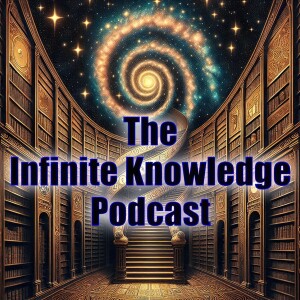Wednesday Jul 31, 2024
Finding the right balance between action and planning, strategy vs. tactics, and concentrated intensity vs. thoughtful awareness, when getting things done.

In this audio essay episode, the dynamic between strategy and tactics in achieving goals was masterfully likened to a symphony, where the harmonization of action and planning plays a pivotal role. The ancient Greek concepts of Kairos and Chronos were introduced to represent the critical moment of action and the systematic unfolding of plans, respectively. The essay continued to draw parallels between the chess grandmaster's approach and Sun Tzu's teachings, emphasizing that while strategy sets the overarching goal and direction, tactics adapt to the immediate challenges and opportunities. Building on this, the essay expanded on the necessity of intense concentration for deep work and thoughtful awareness to ensure actions remain guided and purposeful, warning against the dangers of excessive action without planning or overindulgence in planning at the expense of action.
The exploration then delved deeper into biological systems and physics to further understand the interplay between action and planning. Homeostasis was presented as a biological principle that teaches the need for continuous adjustment and feedback, proposing that we must adapt our strategies and tactics just as our bodies regulate internal conditions. Likewise, elasticity provided a lesson in resilience, suggesting that one should maintain flexibility in the face of challenges. Psychological research, particularly on cognitive biases like the planning fallacy, highlighted the importance of realistic planning and the application of historical data, external opinions, and preparing for overruns to mitigate our tendency to underestimate time and resource requirements. Next, the essay touched on software engineering's agile methodology, economic opportunity costs, and military strategy, all of which align with the agile integration of action and planning. The concept of allostasis—achieving stability through change—combined with elasticity, underscored the importance of proactive adaptation and mental flexibility. In conclusion, the essay advocated for a dynamic balance, informed by a multidisciplinary framework, to successfully maneuver the complexities and unpredictabilities of life.
Comments (0)
To leave or reply to comments, please download free Podbean or
No Comments
To leave or reply to comments,
please download free Podbean App.